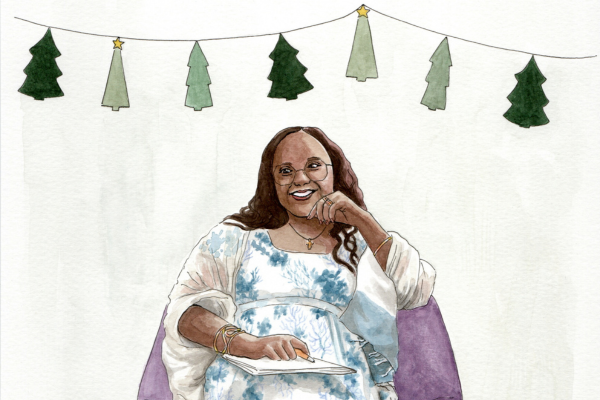
“Boaz was like my backbone.”
Being granted leave to remain is the moment many of the people we support are waiting for. It’s a turning point that unlocks so many doors and brings hope of moving forward with life in the UK. But for Brktiy* [pronounced brick-tee], this moment came and she felt nothing.
“When I came here as a new asylum seeker, I thought I would get my status very quickly, but it took 10 years to get status. So when I got that status, I felt nothing because it wasted my time, my younger years and it affected me emotionally and mentally. So I didn’t feel anything.”
The asylum system is cruel. People like Brktiy spend years of their lives waiting in limbo, trapped in a dysfunctional system, denied the right to work, experiencing deterioration in their physical and mental health. And in recent years, this hostility has bled out from policy and rhetoric onto our streets and into our communities.
Asylum means safety. Yet asylum hotels and accommodation up and down the country are anything but safe in the current climate. Instead, they are places where people feel intimidated, threatened and re-traumatised.
Trapped in a system that takes away your agency and erodes your sense of self, staying busy can become a coping mechanism. While she was waiting for a decision on her asylum claim, Brktiy recalls keeping busy by helping others and teaching them to cook food from her country.
“I made myself busy. The only thing that reminded me that I didn’t have status was when I went to Dallas Court to sign. Being very busy helped me to just forget.”
When asked how she felt when she moved into a Boaz house after getting her refugee status, the contrast in her response to this question was stark:
“It felt amazing. I was very happy when I got a Boaz house, compared with when I got refugee status. I still remember what the room looked like when I got the key. It was a small room, very clean - it looked like a hotel room.”
Everyone who lives in Boaz accommodation is offered holistic, person-centred support that is tailored to the individual. This can include support with accessing healthcare or specialist services, finding educational, volunteering or employment opportunities and navigating UK systems like benefits and social housing.
Boaz support workers are also there to listen, offer advice and emotional support that shows people they are not alone. As we chat, Brktiy talks about the difference that this holistic support made to her life.
“Boaz was like my backbone. My support worker was checking on me every time and if I needed anything they would support me with it. Boaz especially helped me mentally because during that time waiting for status, I felt like I lost that positive mentality. But being supported by Boaz helped me to get that back.”
After moving into Boaz accommodation, things began to shift for Brktiy. She described the galvanising impact of having a safe place to call home:
“Boaz was power and energy for me. When I moved in, it empowered me to start working and start paying my bills because I wanted Boaz to support more people with my rent.”
Brktiy now works in housekeeping at a local Manchester hotel. It’s a varied role; she often helps out in other areas, going above and beyond her normal duties. Although most of her time is spent working, with the spare time she does have, Brktiy still chooses to focus on others.
“I love supporting people - especially those who don’t have status. I also love visiting new mothers who have recently given birth to their children. I don’t have that much time to spend, but with my time, I like to do that.”
It’s clear that Brktiy has a heart for people, particularly for supporting those on the margins. Asked about the state of the current UK asylum system and what she thinks needs to change, Brktiy said:
“The first thing is people shouldn’t be waiting for a long time to start working, to get employment. I think people should get their status as soon as possible and be supported with employment so that they can support the UK economy. It’s a waste of time for people and somebody staying without status for a long time will affect the person but also the country.”
Having lived in Manchester for 6 years, and in the UK for more than a decade, Brktiy has seen the catalogue of hostile asylum and immigration legislation introduced by successive governments in recent years. She highlights the new treaty with France, drawing attention to the urgent need for safe routes:
“I don’t agree with or like the new ‘one in one out’ policy with France. It is not helpful to anyone. Safe routes need to be opened. People are losing their lives.”
Wrapping up the interview, Brktiy shares what she would like others to know about her as a person and about her hopes for the future:
“I want people to know me and see me as strong, very intelligent and a hard worker [...] With God’s help, I hope to have my own business - a restaurant on Market Street.”
*Name changed
This Christmas, will you stand in solidarity and hope with people seeking sanctuary like Brktiy? Let's show who we are, together.




